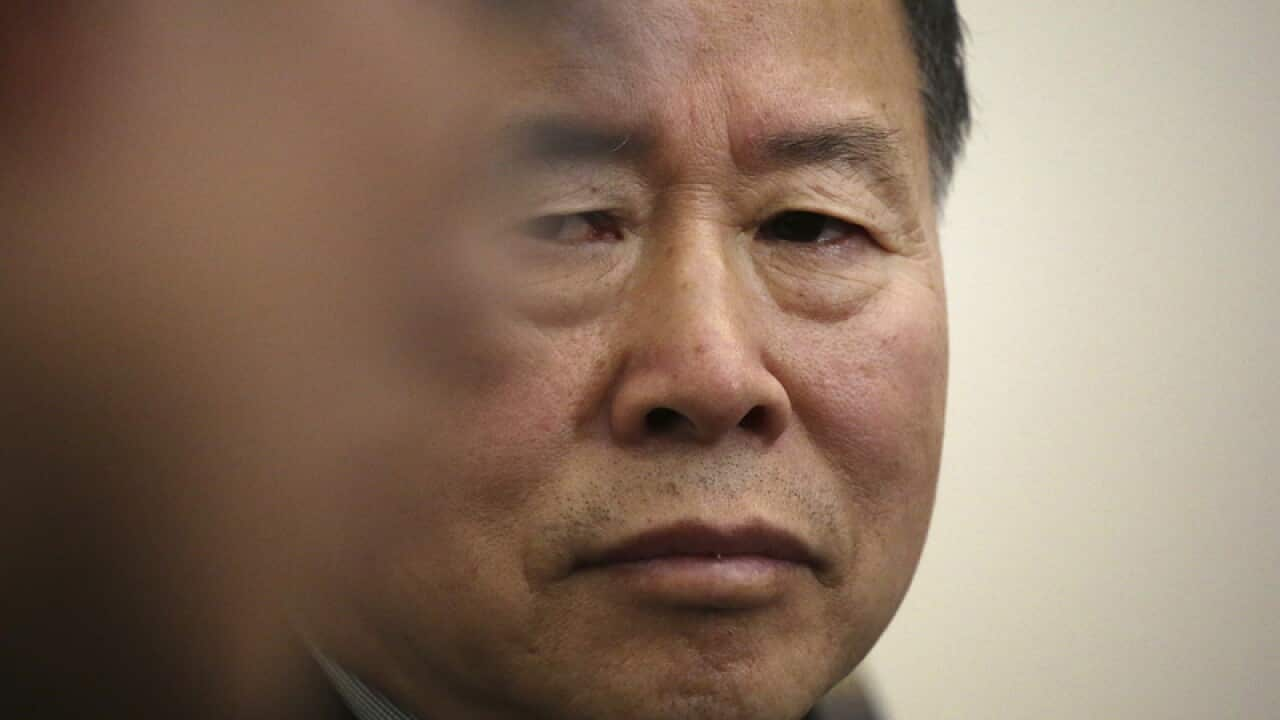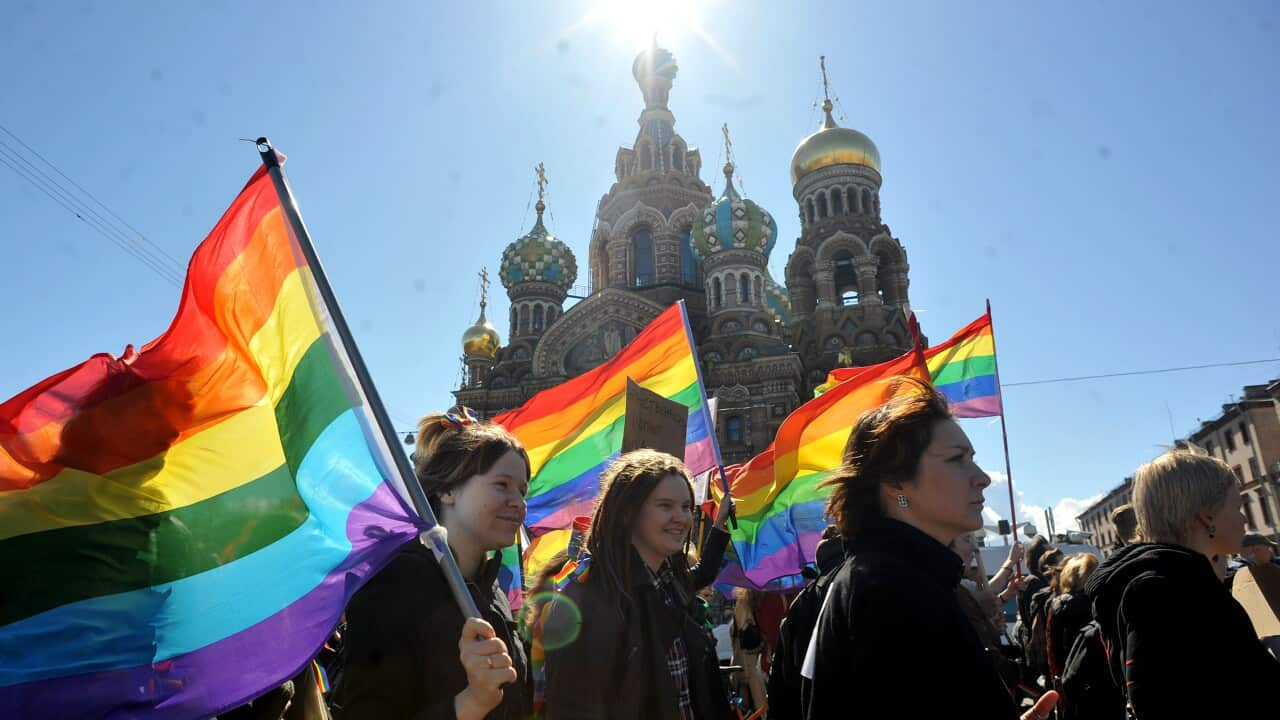Russian Federal prosecutors will launch an investigation into reports of the torture, murder and detention of gay men in the territory of Chechnya. A journalist behind the explosive story told SBS she is committed to giving evidence.
Elena Milashina, one of the two journalists who broke for Russian independent newspaper Novaya Gazeta, told SBS she would defer plans to flee Russia following death threats, and instead delay travel for a “short time” to answer investigator’s questions.
“I need to be here, to participate in this investigation,” she said.
“I was the first one who started the situation, who published the story. I’m the one who should be questioned first,” she said.
“Second, that was why we’re doing all these things – so the government would respond to the situation in Chechnya.”
The Kremlin on Friday it had not received any "reliable information" about the Chechen reports, but on Monday the Prosecutor-General’s Office they had launched an investigation.
While she may be the first, Ms Milashina is unlikely to be the only one answering questions.
SBS understands that Russian LGBT+ groups and human rights organisations have been attempting to document the situation and the Russian LGBT Network labels the persecution a crime against humanity.
Ms Milashina’s report, which has since been corroborated by human rights groups and other journalists, alleged that a systematic program of detention and torture was being carried out against gay men in Chechnya.
Three men have been killed and over 100 had been detained, Novaya Gazeta reported.
The newspaper reports it has confirmed the identities of those killed and many of those detained.
Ms Milashina said she would be careful not to reveal the identity of vulnerable individuals, and urged the Russian government to guarantee protection for witnesses.
“I will answer the questions. Anything that I can answer, I will tell them,” she said.
Security is reportedly high at Novaya Gazeta, and the paper says six of its journalists have been killed since publishing its first copy in 1993.
The most high-profile death was the 2006 murder of journalist Anna Politkovskaya, shot four times at point-blank range on Vladimir Putin’s birthday.
Before the investigation was announced, Ms Milashina told the Washington Post she was planning to leave Russia for her own safety.
“It doesn't matter that Kremlin spokesman Dmitry Peskov announced clearly that journalists are under the Kremlin's protection and that no one can kill them for their professional duty. The threat still exists.”
Novaya Gazeta's editors voiced strong concerns over a wave of threats the outlet has been receiving, blaming Chechen authorities for incitement.
The newspaper's report and subsequent follow-ups have prompted international condemnation and mounting pressure for Russian authorities to intervene in the troubled southern region.
With the announcement of the investigation, there are renewed hopes that the federal Russian government will step in to put an end to the situation.
Ms Milashina said it was a possibility.
“It depends on what actually the government wants – if they want a real investigation then yes, I think they will put real pressure on Chechnya authorities to stop and they will save a lot of people,” she said.
World News:

North Korea threatens 'all out war'
The investigative journalist told SBS that sustained pressure from independent media within the country, and mounting international pressure from other countries, had led to the investigation.
“It’s a result of pressure that we all together put on the Russia government,” she said.
“I think the international pressure was first in this situation that helped.”
Europe, the UN, Canada, Australia, the United States and others have raised serious concerns about the reports.
US Ambassador to the United Nations, Nikki Haley, yesterday said America was .
“If true, this violation of human rights cannot be ignored – Chechen authorities must immediately investigate these allegations, hold anyone involved accountable, and take steps to prevent future abuses,” she said in a statement.
Initially, Chechen authorities responded by denying homosexuals existed in the Russian territory, suggesting that their families would have resolved their existence by sending them to a place "where they could never return."
Several gay men in the Islamic territory told SBS they feared for their lives if friends and relatives discovered they were gay.
The prosecutor's investigation was opened two-and-a-half weeks after the original Novaya Gazeta report.
“The reaction of authorities now is going very slow – but they’re going,” Ms Milashina said.
“Definitely it’s a much bigger story in the West than in Russia, because major federal media didn’t cover this story – only independent media is covering it.”





